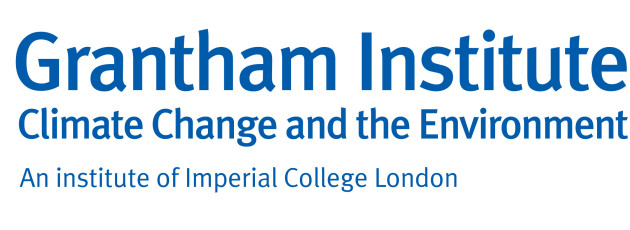Course details
- 48 live online learning hours
- lectures from experts, whole group discussions, small group break out activities, practical projects and case studies.
- 12 sessions delivering over 6 weeks with 2 sessions per week. (5th March -10th April 2025)
- Each session is 4 hours in length.
- All sessions will take place live online delivering via MS Teams or Zoom.
- Time: 09.00 - 13.00 (UK time)
Fees: TBC
Join a 6-week journey to become a green champion and lead the way toward a sustainable future.
Delivered by Imperial experts live online.
Starting in March 2025
Overview
The changing climate is affecting and will continue to impact the way that businesses work. Organisations need to consider current and future regulations, technologies, innovations, opportunities and risks that will transform their business.
This programme has been crafted to empower individuals to deepen their understanding of sustainability, appraise their organisation and lead the discussion around improvements in the business. These individuals can become the designated 'green champions' within the organisational framework.
This programme has been developed with the Grantham Institute – Climate Change and the Environment, a global institute at Imperial College London.
More information
- Programme outline
- Who should attend?
- Benefits of attending
- Programme structure and teaching methods
- Accreditation
This program is designed to empower and upskill professionals to become sustainability champions and green skills leaders within their organisations. Gain a comprehensive understanding of key sustainability concepts, master practical skills, and learn how to drive impactful change across industries.
The programme will cover the following sessions:
Session 1: Introduction to Sustainability
This session will introduce participants to the definition of sustainability, the SDGs and how this interlinks to climate change and the environment. Participants will discuss real life sustainability challenges, both locally and globally, and the various considerations contributing to these challenges. The final project will also be introduced.
Session 2 & 3: Climate Change, Mitigation and Adaptation (in two parts)
These sessions will discuss the science behind climate change, the role of biodiversity, how carbon footprints are measured, and the types of solutions being developed. Strategies for mitigating and adapting to the impacts of climate change will be explored.
Session 4: Environmental Policy and Regulations
There will be an overview of the general roles that regulations play when it comes to sustainability. This may cover laws, regulations, compliance, reporting, and environmental impact assessments.
Session 5: Green Finance
Green finance policy, regulation, markets and instruments will be explored. The opportunities and risks around climate change will be discussed, including within the nature based finance and investment context.
Session 6: Green Entrepreneurship and Intrapreneurship
Building on the last session, the learners will consider sustainable business models and look at case studies of green businesses. This session would also consider risk management, stakeholder engagement and effective communications.
Session 7 & 8: Energy (in two parts)
These sessions will consider energy in the context of Greenhouse Gas emissions and mitigation. Learner will discuss energy systems, decarbonisation plans, renewable energy technologies and energy efficiency.
Session 9: Consumption and Circular Economy
For this part, waste reduction strategies will be examined, along with water management, recycling and upcycling, and the principles of circular economy. Supply chain management in this respect will also be discussed.
Session 10: Transport
In this session, learners will look at the different emissions when considering transport, the new technologies to reduce emissions, how this would work when looking at cities and infrastructure, and how all this creates opportunities as well as thinking about the risks.
Session 11: Agriculture and Food
In 2019, food production was responsible for ¼ of the worlds emissions. This part of the course will look at addressing this, with topics including land use, land-use change, and forestry, organic farming methods, permaculture principles and sustainable crop management.
Session 12: Practical Project presentation
All course participants will have to prepare a green strategy for their organisation and present it at this session. There will be discussion around each strategy and feedback.
The programme is designed for individuals who are interested in acquiring knowledge and expertise related to sustainable practices, environmental conservation, and making a positive impact through their work. It is relevant for a diverse range of professionals, including business and corporate professionals, policy makers and government officials, community leaders, educators, career changers, entrepreneurs and start-up founders, nonprofit and NGO professionals. The programme is designed to be interdisciplinary, catering to individuals from various professional backgrounds and level of expertise.
On completion of this programme, participants will:
- have developed a heightened awareness of global environmental issues and challenges.
- understand the science behind climate change and the types of solutions being developed.
- be able to apply theoretical knowledge to real-world solutions
- offering advice and implementing environmentally friendly practices within their organisation.
The programme consists of:
- 48 live online learning hours
- lectures from experts, whole group discussions, small group break out activities, practical projects and case studies.
- 12 sessions delivering over 6 weeks with 2 sessions per week. Each session is 4 hours in length.
- All sessions will take place live online delivering via MS Teams or Zoom.
The schedule for each session will vary slightly, but an indication of what to expect for most of the sessions would be (UK time):
09:00 Introduction to session
09:15 Expert lecture
10:00 Whole group discussion
10:30 Break
10:40 Facilitated breakout group activity
11:30 Group feedback and discussion
11:40 Break
11:50 Facilitated breakout group activity
12:40 Group feedback and discussion
12:50 Wrap up
13:00 Close
A detailed session breakdown will be shared with participants before programme commencement.
Participants will present their net zero implementation plan at the final session.
The entire programme will be taught in English.
All participants will be awarded an Imperial College London Certificate of Attendance on successful completion of the programme.
.jpg)
